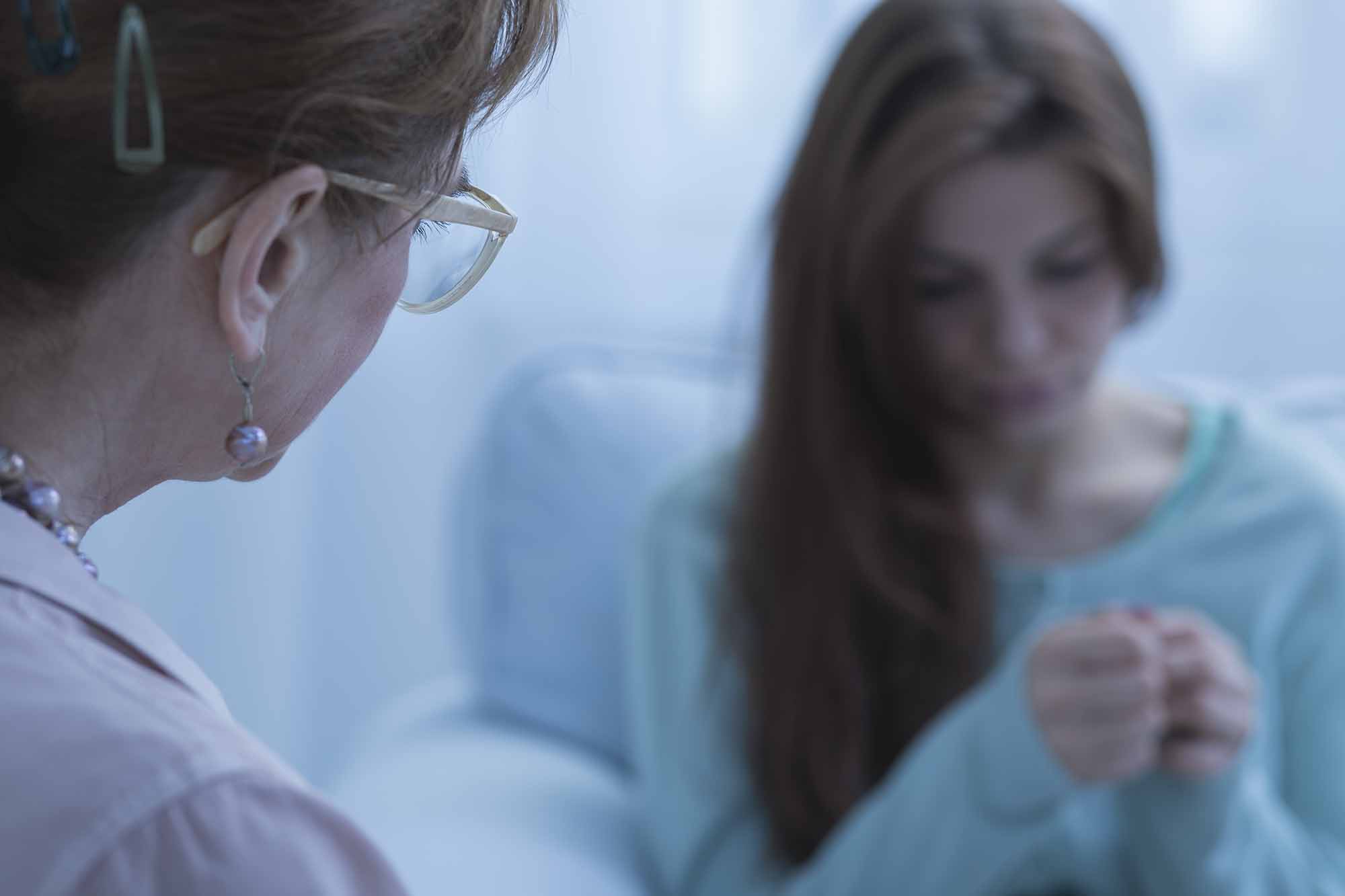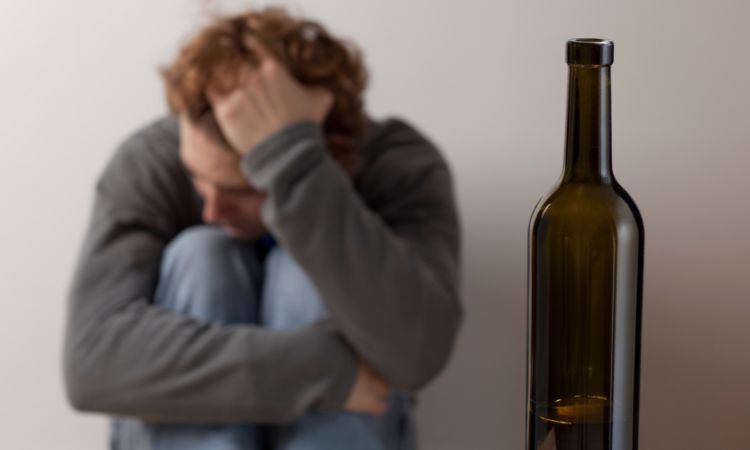
Most Effective Treatment for Depression
Depression, also known as major depressive disorder or clinical depression, is a very common mental health disorder. In fact, research estimates that around 20% of all people will have depression at some point in their life.
As you may know, depression can negatively impact various parts of your life including your relationships, physical health, job and much more. However, this is a disorder that can be treated, so know today that you are never alone. Here at Riverwalk, we have treatments that can start benefiting you very soon.
Symptoms of Depression
The first thing we would like to share is that depression doesn’t hit everyone the same. There are some people with mild symptoms that come and go while there are others who have severe depressive episodes that stay around for a long time. There are people who are in the middle of this spectrum, too.
With this being said, there are some symptoms of depression that are common. If you or someone you know are dealing with these symptoms it would be a good idea to seek treatment here at Riverwalk Recovery Center:
- Irritability
- Feeling empty, anxious, or sad
- Feeling hopeless or guilty
- Losing interest in hobbies and activities you like doing
- Appetite changes which could cause weight loss or weight gain
- Sleeping too much or too little or waking up often throughout the night
- Lacking energy
- Feeling tired or exhausted most of the time
- Feeling like you are worthless
- Trouble concentrating
- Memory issues
- Suicidal thoughts
Don’t let these symptoms keep taking over your life. There are a range of different treatments that could be effective in helping you to overcome or manage this disorder.
Therapy Options When Treating a Depressive Disorder
One effective treatment option for depressive disorders is therapy. This can be a vital part of managing any mental health condition. Some people experience benefits in weeks, while others may experience benefits a bit later. Either way, going to therapy can get you the support, understanding and guidance you need to better manage the depression. Some of the therapy options when treating a depressive disorder include:
- Cognitive behavioral therapy or CBT
- Interpersonal therapy or IPT
- Music and/or art therapy
- Nutritional and/or fitness therapy
- Medication-assisted treatment
If you want to find out more about these therapy options, don’t hesitate to reach out to our team here at Riverwalk Recovery Center today.
Medications Used to Treat Depressive Disorders
In addition to therapy, many professionals will prescribe medications to help treat the depression symptoms, too. Some of the medications that your doctor or psychiatrist may prescribe include:
- Serotonin and norepinephrine reuptake inhibitors or SNRIS
- Selective serotonin reuptake inhibitors or SSRIS
- Mood stabilizers
- Serotionin modulators
- Monoamine oxidase inhibitors
- Atypical antidepressants
- Tricylcic antidepressants
It is important to remember that many of these medications may take up to 6 weeks to reach their full effects, so if you are experiencing depression don’t wait until it gets worse to ask for help and treatment. The sooner you get going on a treatment plan, the sooner you can start feeling better.

Treating Treatment-Resistant Depression
Sometimes, people attend therapy and receive medication, but with no avail. If you are dealing with this issue, you may have treatment-resistant depression, also known as refractory depression. This happens for around 30% of those with a depressive disorder. However, this doesn’t mean that nothing will help you to feel better. There are certain treatments that may work for you. If you are wondering more about these options, talk to a member of our team here at Riverwalk and we can help you to learn more about these treatments.
Attending Outpatient or Inpatient Treatment
A lot of the time, people will receive outpatient treatment for their depression. There are cases when that works well for the patient. However, there are times when someone may need inpatient treatment instead. Some of the instances when you may need to seek out treatment in an inpatient rehab include:
- Suffering from moderate to severe depression
- Having suicidal thoughts or previously attempting suicide
- Not having enough support from family and friends
- Dealing with a range of obstacles in life
- Struggling with depression related to trauma
- Having a co-occurring disorder (addiction and mental health disorder)
- Having multiple mental health illnesses
Each outpatient and inpatient treatment program is going to have their own routines, structure and treatments. This is why you will need an assessment before heading into treatment, so the professionals at the facility can help to determine the best course of treatment for you.
Best Lifestyle Changes to Make to Manage a Depressive Disorder
You read above about some of the common ways to manage a depressive disorder. In addition to these options, there are some lifestyle changes we recommend including:
- Improving your diet – eating a lot of vegetables and fruits can reduce depressive symptoms
- Exercising – everything from going for a walk to playing a sport can help improve your mood
- Sleeping well – getting 7 to 9 hours of sleep each night, not overdoing your schedule, and taking a nap when need be can bring about more positive thoughts and improve your mood, too
It may take you a bit to make these lifestyle changes. However, if you stick with your treatment plan and slowly work on implementing these changes into your life, things can start improving for you.
Issues Caused by Untreated Depression
Are you experiencing depressive symptoms? If so, we highly recommend the treatment options mentioned above. It is important to know there are many other issues that can be caused by untreated depression such as:
- Physical health issues
- Substance abuse
- Social isolation
- Suicidal thoughts or attempts
- Relationship issues
- Higher risk of experiencing other mental health issues
Depression is often chronic. However, most people who experience chronic depression need regular treatment. If you aren’t sure where you need to start with treatment, don’t worry. You can start by calling our team and we can talk to you about which treatments we believe would be the most effective in your case.
If you are already experiencing these other issues as a result of an untreated depressive disorder, we want you to know that you may be able to repair or reverse some of the damage that has been done.
Get Effective Treatment for Depression Today
Depression is a very common mental health condition affecting people of all age groups. If you are experiencing any of the symptoms noted above or you have questions about which treatments would be best for you, don’t hesitate to reach out to our team to get more information or start treatment.
Contact us today to get the effective treatment you need to manage your depression starting right away.

Your site is a testament to the power of empathy and connection. Thank you for reminding us that we are not alone in our struggles with mental health, and that there is hope for a brighter tomorrow.
Wow, incredible blog layout! How long have you been blogging for?
you make blogging look easy. The full glance of your site is fantastic, as well as the content!
You can see similar here sklep online